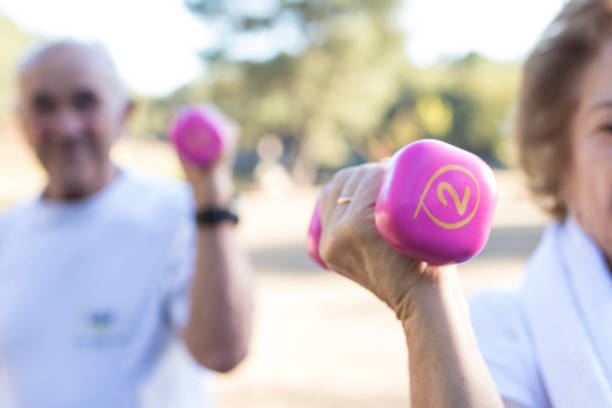As we age, maintaining heart health becomes increasingly important. Cardiovascular disease is a leading concern among seniors, but the good news is that a healthy heart can often be supported through thoughtful lifestyle choices and regular exercise. In this article, we’ll explore practical strategies for seniors to nurture their cardiovascular health, empowering them to enjoy a vibrant and fulfilling life.
Contents
- 1 The Importance of Heart Health in Seniors
- 2 Exercise: The Cornerstone of a Healthy Heart
- 3 Lifestyle Choices That Support Heart Health
- 4 Regular Health Check-Ups: Staying Ahead of the Curve
- 5 Building a Supportive Environment
- 6 Overcoming Common Barriers
- 7 The Long-Term Benefits of a Heart-Healthy Lifestyle
- 8 Final Thoughts
The Importance of Heart Health in Seniors
The heart is a vital organ that tirelessly pumps blood and oxygen throughout the body. However, aging naturally changes the cardiovascular system. Arteries may become less flexible, and the risk of conditions such as high blood pressure, coronary artery disease, and heart failure increases.
Focusing on preventive measures can significantly reduce seniors’ risk of heart-related illnesses. Exercise, a nutritious diet, stress management, and regular health check-ups are key components of a heart-healthy lifestyle.
Exercise: The Cornerstone of a Healthy Heart
1. Aerobic Activities for Cardiovascular Fitness
Aerobic exercise is one of the best ways to keep the heart strong. Activities like walking, swimming, or cycling can improve circulation, lower blood pressure, and increase the heart’s efficiency. The American Heart Association recommends at least 150 minutes of moderate-intensity aerobic exercise per week for adults.
For seniors, starting slow and gradually increasing intensity is crucial. A 10-minute daily walk can be a stepping stone to longer sessions. Group exercise classes tailored to seniors are also a fun way to stay active and socially connected.
2. Strength Training for Overall Health
While often overlooked, strength training is essential for seniors. Building muscle improves metabolism and indirectly supports heart health by aiding weight management and enhancing overall fitness.
Seniors can incorporate light weights, resistance bands, or bodyweight exercises like squats and push-ups into their routine. Always consult a healthcare provider or fitness expert to create a safe plan tailored to individual needs.
3. Flexibility and Balance Exercises
Yoga and stretching exercises improve flexibility, reduce stress, and enhance balance, reducing the risk of falls. These low-impact activities complement aerobic and strength exercises by contributing to overall well-being.
Lifestyle Choices That Support Heart Health

1. A Heart-Healthy Diet
Nutrition plays a pivotal role in maintaining cardiovascular health. A diet rich in fruits, vegetables, whole grains, lean protein, and healthy fats is essential. Seniors should focus on reducing saturated fats, trans fats, and added sugars, which can contribute to heart disease.
The Mediterranean diet, known for its emphasis on olive oil, nuts, and fish, is particularly heart-friendly. Adding fiber-rich foods such as oats, beans, and legumes can further support cholesterol management.
2. Stress Management
Chronic stress can lead to high blood pressure and other cardiovascular issues. Seniors can benefit from mindfulness practices, meditation, or engaging hobbies that bring joy and relaxation.
Deep breathing exercises and progressive muscle relaxation techniques are simple yet effective ways to calm the mind and reduce stress.
3. Quality Sleep
Sleep quality often declines with age, but poor sleep can negatively impact heart health. Conditions like sleep apnea, common in seniors, should be addressed promptly. Establishing a consistent bedtime routine, creating a comfortable sleeping environment, and avoiding stimulants like caffeine in the evening can promote restful sleep.
4. Avoiding Tobacco and Limiting Alcohol
Smoking is a major risk factor for heart disease. Seniors who smoke should seek support for quitting, as it’s never too late to see health benefits. Similarly, alcohol consumption should be moderated. For most seniors, this means no more than one drink per day.
Regular Health Check-Ups: Staying Ahead of the Curve
Frequent visits to the doctor can help seniors monitor their heart health effectively. Routine checks for blood pressure, cholesterol, and blood sugar levels are crucial in identifying potential issues early. Seniors with pre-existing conditions like diabetes or hypertension should work closely with their healthcare providers to manage these effectively.
Building a Supportive Environment
Maintaining heart health isn’t just about individual effort—it’s also about creating a supportive environment. Family members can play a vital role by encouraging healthy habits, joining seniors in exercise routines, or preparing nutritious meals together. Community resources, such as senior centers and fitness programs, provide social engagement and physical activity opportunities.
Overcoming Common Barriers
While the benefits of exercise and a healthy lifestyle are clear, many seniors face barriers such as limited mobility, chronic pain, or lack of motivation. Adapting activities to meet physical limitations and celebrating small victories can make a big difference. Working with a physical therapist or fitness trainer can help seniors create personalized, achievable goals.
The Long-Term Benefits of a Heart-Healthy Lifestyle
The journey to better heart health is not just about adding years to life but also adding life to years. Seniors who prioritize exercise and healthy living often experience improved energy levels, better mood, and greater independence. These changes contribute to a higher quality of life, making the effort truly worthwhile.
Final Thoughts
Promoting heart health in seniors through exercise and lifestyle choices is a powerful way to support longevity and vitality. By embracing aerobic activity, strength training, flexibility exercises, a heart-healthy diet, stress management, and regular medical check-ups, seniors can take proactive steps toward a healthier heart and an enriched life. Every small change adds up, proving that it’s never too late to prioritize heart health.
